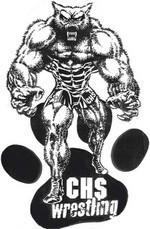|

*If you are trying to maintain/lose weight, I have found a useful table
that will help you stay healthy without the common "binge dieting".
Other Facts/Info/Excercises
*Here you can find exercises for forearms, stretching exercises, facts on carbs, how
muscles work, and a daily proten requirement calculator.
|
 |

The purpose of the hydration test is to help assure each wrestler's weight take at the time
of measurements is an accurate weight from which a minimum weight can be established. Below are some guidelines that can help
you prepare for the hydration test. But staying hydrated means more than passing the hydration test. It is an important step
in making sure you perform your best in your sport.
Water is second only to the air in its importance to our survival. our bodies are 60-65% water by weight. Much of this
fluid weight comes from the muscle (70% water) and the blood - both of which are critical to optimal athletic and wrestling
performance. Dehydration compromises muscular endurance and strength. Dehydration also decreases blood volume, which
can decrease athletic performance and increase the risk for heat illness (heat cramps, heat exhaustion, or heat stroke).
The key to staying hydrated is to drink plenty of non-caffeinated beverages throughout the day, and to replace
fluid loss incurred while working out. On a daily basis, this will help you feel stronger and last longer at practice and
matches. It will help you pass the hydration test before your measurements are taken.
*Drink 8-10 (8 ounces) glasses of water, or non-caffeinated beverages daily.
*Drink another 4 cups for every hour you workout.
*2 hours before a match, drink 16-24 ounces of water or non-caffeinated beverage.
**These tips stress avoiding caffeine, because caffeine is a diuretic. That means it increases urine production. Increased
urine production means you are losing extra fluids, essential for top performance and will likely become dehydrated. Caffeine
is a common ingredient in some sodas, coffee beverages, and some teas. Chocolate and some pain relievers may also contain
caffeine. Additionally, carbonated beverages will also contribute to the sensation of "feeling full" or bloated. This sensation
may be counter-productive, as it will likely diminish the thirst drive, and lower your stamina.
*** more info @ www.nwcaonline.com ***
|

